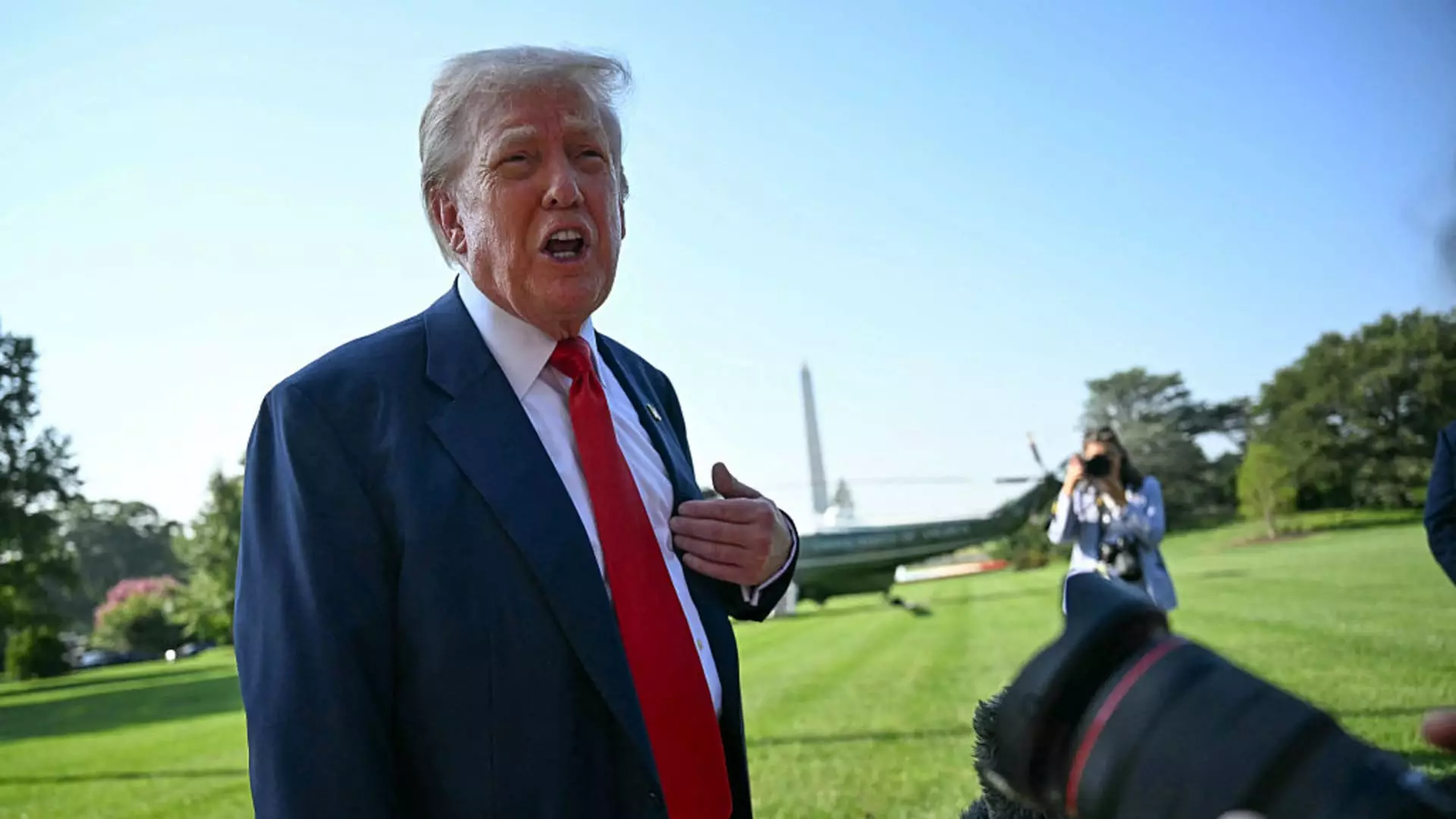In an era where public figures are scrutinized relentlessly, the political dance surrounding elites embroiled in scandal reveals much about societal priorities and integrity. When President Donald Trump publicly distances himself from Jeffrey Epstein, asserting he had “nothing to do” with the convicted sex offender, the gesture appears more strategic than genuine. It underscores a broader tendency among powerful individuals to disassociate from uncomfortable truths, especially when their connections to victims and alleged accomplices come under scrutiny. Trump’s quick pivot to highlight others—former President Clinton or Harvard’s Larry Summers—further exemplifies a defensive tactic: deflect, diminish, and redirect blame.
This pattern isn’t unique to Trump; it illustrates a systemic inclination among the powerful to insulate themselves from accountability by framing themselves as victims of unfair scrutiny. The assertion that others, like Clinton or hedge fund managers, shared social connections with Epstein, relieves Trump of any complicity, but it also reinforces a dangerous narrative: that association alone, regardless of action or intent, should not be judged harshly. Such defense mechanisms ultimately serve to obfuscate rather than clarify the truth, emphasizing the importance of independent investigation over political spin in pursuit of justice.
Controversy and the Struggle for Transparency in High-Profile Investigations
The controversy surrounding Jeffrey Epstein’s case extends beyond individual allegations; it strikes at the core of transparency within the justice system. The DOJ’s reluctance—or outright refusal—to release Epstein investigation files underscores a troubling trend: when the powerful are involved, transparency often takes a backseat to political protection. Trump’s own intervention to unseal grand jury transcripts hints at a recognition of the public’s right to know, yet the continued secrecy fuels suspicion instead of assuaging it.
The unsealing of files or lack thereof isn’t merely about revealing dirt; it reflects the fundamental integrity of justice institutions. As citizens, we deserve full disclosure, especially when allegations of sex trafficking, abuse, and exploitation are involved. Preventing access to these records erodes trust and perpetuates the perception that justice is selectively applied—a notion that diminishes the legitimacy of the legal process and endangers the rule of law. Whether Trump’s involvement in these governmental decisions is innocent or strategically calculated, such opacity only deepens public cynicism.
Ghislaine Maxwell and the Power of Public Perception
Ghislaine Maxwell’s ongoing trial and detention are emblematic of the complex layers of accountability and societal judgment. Her defense team’s constant rhetoric about her treatment in prison and her portrayal as a scapegoat highlight how powerful narratives are crafted in the courtroom and the media alike. The accusations against her, framing her as a victim of an unfair system, serve a dual purpose: to garner sympathy and to question the severity of her sentence.
However, dismissing Maxwell’s guilt or innocence without careful examination undermines the seriousness of her alleged crimes. Her treatment and legal strategies reveal how societal perceptions can be manipulated—both to humanize an accused and to shift blame onto external injustices. At their core, such narratives challenge us to consider whether our judgments are grounded in truth or shaped by strategic framing. The discourse around Maxwell exemplifies a broader tendency: when high-profile individuals are involved, the intricacies of justice often blur into spectacle, overshadowing the victims and the pursuit of genuine accountability.
The Question of Power, Influence, and Moral Responsibility
What these intertwined stories expose is a fundamental question about the moral responsibilities of those in positions of power. The tendency to deny, deflect, or downplay involvement reflects an underlying fear: the fear of losing influence or reputation when exposed. Yet it also raises the pressing issue of societal complicity. When elites like Clinton, Harvard officials, or hedge fund moguls are quietly linked to Jeffrey Epstein, it suggests a network that often operates beyond public scrutiny—raising concerns about systemic protections that shield the powerful from consequences.
Central to this discussion is the recognition that real change hinges on holding figures accountable, regardless of their social standing. The ongoing investigations, the calls for transparency, and Maxwell’s trial all serve as litmus tests for whether society is willing to confront its uncomfortable truths. Power and influence should not be shields against justice; instead, they demand a higher level of moral scrutiny and responsibility. Only by breaking the cycle of denial and secrecy can genuine progress be made toward a society where accountability is prioritized over reputation.

Leave a Reply